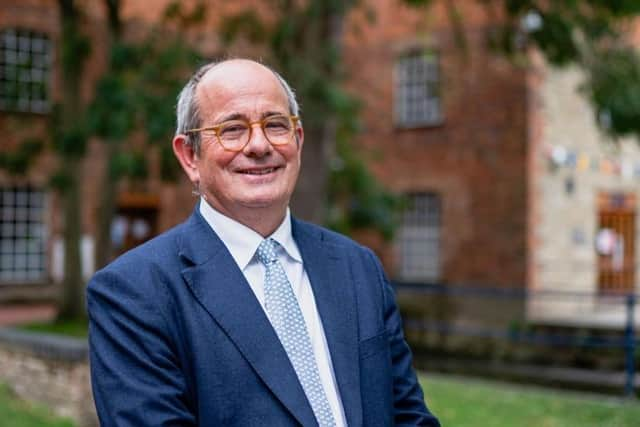University of Buckingham vice chancellor "disturbed" by new no-platforming report
and live on Freeview channel 276
The vice chancellor at the University of Buckingham has stated he was disturbed by no-platforming findings shared in a new academic report.
Vice Chancellor, James Tooley who wrote a foreword for the report, was left disturbed by the new way people are being discouraged from attending universities.
Advertisement
Hide AdAdvertisement
Hide AdNo Platform: Speaker Events at University Debating Unions was written by London School of Economics PPE graduate Josh Freeman and is based on analysis of student events and interviews.


The report found that students are now “quietly” no-platforming by not inviting potentially unpopular or controversial speakers to avoid anticipated backlash when appearances are made public.
Among the examples of high profile speakers students shied away from inviting were Harry Enfield and Tony Blair.
The report has been published by the Higher Education Policy Institute.
Advertisement
Hide AdAdvertisement
Hide AdProfessor Tooley said: “What is disturbing is not so much the problem of no-platforming, but the phenomenon of ‘quiet’ no-platforming. That is, where ‘otherwise suitable speakers’ are not invited, because it is feared the invitation will spark a backlash from peers or the authorities.”
The London School of Economics and Cambridge University are among the institutions investigated in the 68-page report.
Josh said: This report shows there is a pool of keen, thoughtful and motivated students willing to debate tough issues on today’s campuses. Yet these students are shying away from difficult topics and controversial speakers because they fear a backlash. At the LSE and Cambridge Union, students received abuse and harassment for their part in running speaker events. Cases like these push students towards safer events and away from the most challenging and thought-provoking topics.
"This ‘quiet’ no-platforming is a clear threat to free expression in UK universities. The Government should work with universities to bring about a cultural shift in the way speaker events are handled and received.“
Advertisement
Hide AdAdvertisement
Hide AdThe British National Union of Students established a ‘no platforming’ policy in 1974 to enable students to boycott university speeches.
It was designed to stop talks being held by individuals holding racist and fascist views being heard at these educational institutions.
